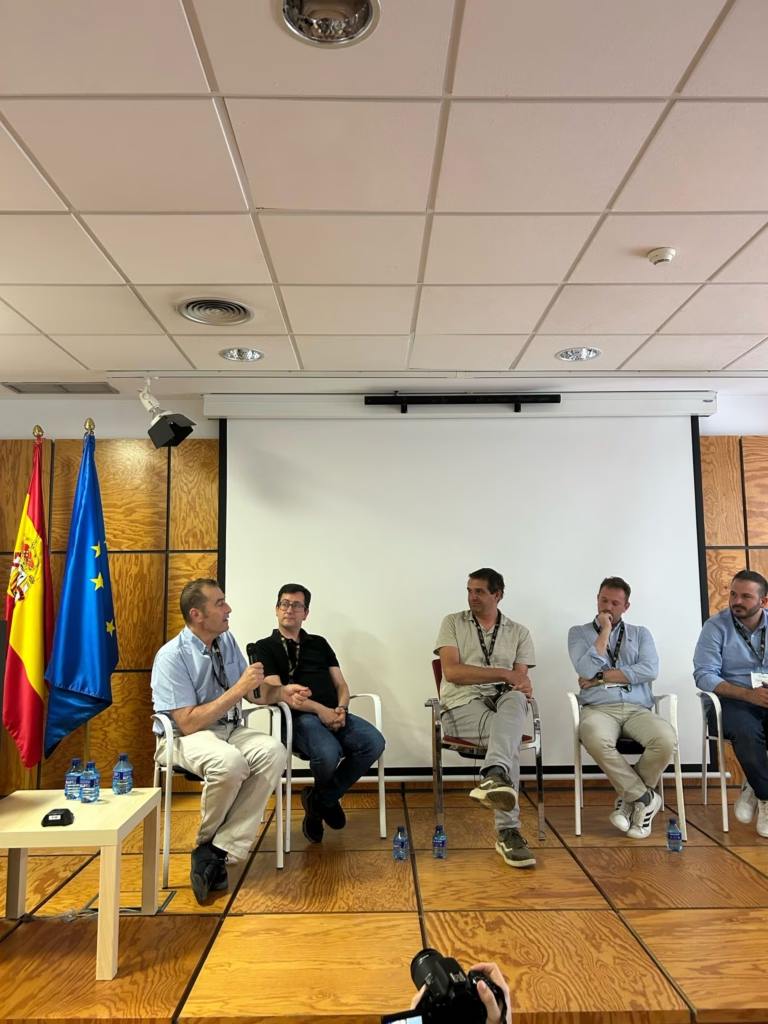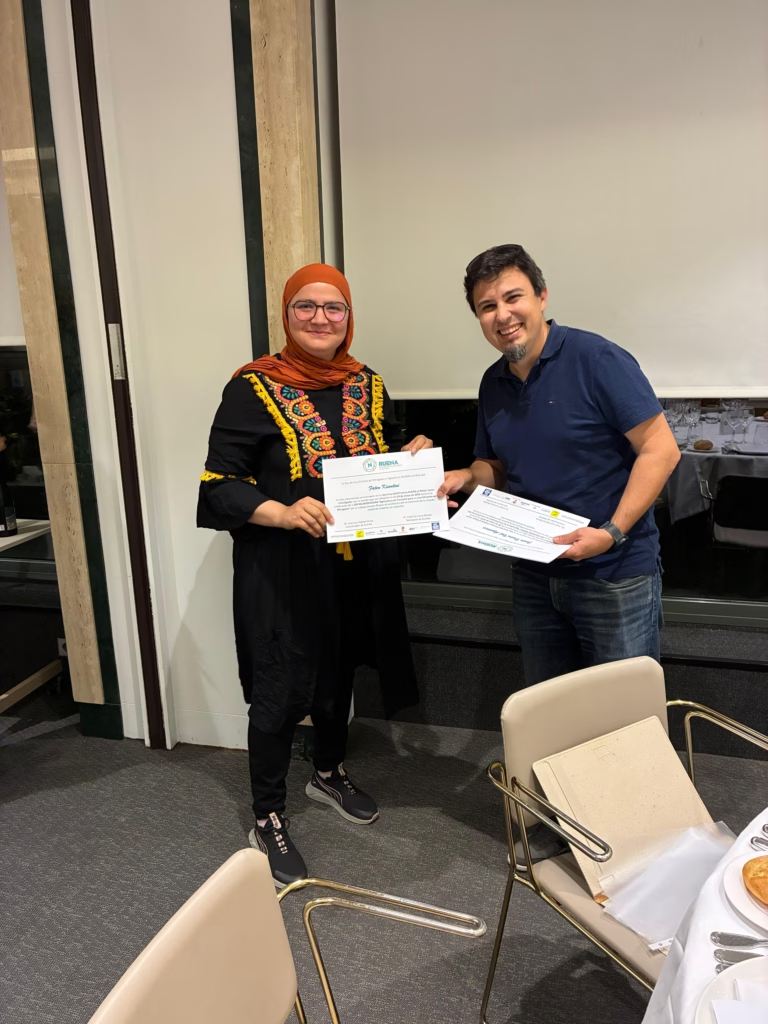The meeting, organised in collaboration with ITACyL, focused on the opportunities offered by precision agriculture to move towards more sustainable fertilisation.
By: María Alonso-Ayuso y Jose L. Gabriel, with edit from CEIGRAM.
Following the RUENA Network meeting in Zaragoza (organised by CITA), where we held the 19th Meeting in 2024, this year we returned to Valladolid twenty years later.
The Network for the Efficient Use of Nitrogen in Agriculture (RUENA) held its 20th annual meeting in Valladolid on 29 and 30 May 2025, coordinated by the Agricultural Technology Institute of Castile and León (ITACyL). This edition, under the slogan ‘Precision Agriculture for Efficient Nitrogen Use’, has consolidated RUENA as a national reference forum on plant nutrition and agricultural sustainability, bringing together more than 70 participants, including researchers, technicians, companies from the agri-food sector, associations and public administrations.
The conference was opened by the Director General of ITACyL, Rafael Sáez; the Network Coordinator, José Luis Gabriel; and the Coordinator of the Organising Committee, María Alonso.
The opening presentation was given by Dr Carlos Camino, a researcher at Wageningen University, who gave a talk on the ‘Current and future potential of remote sensing for improving fertiliser use efficiency’. This was followed by presentations from leading experts who explored the many applications of precision agriculture for more efficient nitrogen management. David Nafría (ITACyL) opened the block with the presentation ‘Remote sensing as an additional tool in nutrient balances and its connection with SATIVUM’. He was followed by José Antonio Martínez Casasnovas (University of Lleida), who presented ‘The apparent electrical conductivity of the soil as a tool for delimiting differentiated management areas and its application in Precision Agriculture’. Ana Aizpurua (NEIKER) gave a presentation on ‘How to integrate remote sensing and farmer knowledge through machine learning to define fertilizer doses’. Finally, Miguel Quemada (CEIGRAM/Universidad Politécnica de Madrid) closed the session with ‘Remote sensing as a tool for identifying factors that affect N use efficiency’.

Thursday afternoon was devoted to presentations by young researchers competing in the second edition of the RUENA Young Researchers Award. On this occasion, eight papers were presented, and the jury—composed of one representative from each of the eight sponsoring companies — decided to award the €1,000 prize to Karen Martí Jerez, a doctoral student at IRTA, whose work was entitled ‘Recommendation Algorithm for Optimising Nitrogen Fertilisation in Rice with Organic and Mineral Fertilisers through Remote Sensors’. Among the young researchers was also Faten Ksantini, a pre-doctoral researcher at CEIGRAM, who presented ‘Maps for predicting barley yield using regression models’.

The afternoon session also included a round table discussion that complemented the technical presentations of the morning, providing a practical perspective from the agricultural production and business sectors. Moderated by David Nafría, it brought together a diverse panel composed of Guadalupe Tejero (agricultural producer), Jorge Miñón (aGrae Solutions), Ángel Maresma (Eurochem Iberia SL), Jorge Martínez Guanter (Corteva Agriscience), Carlos Camino (U. Wageningen) and Miguel Quemada (Universidad Politécnica de Madrid). During the debate, key issues were raised, such as their added value in different contexts, their main challenges, barriers to their implementation and current opportunities.
Friday 30 May was devoted to the traditional technical visits, with a first tour of the facilities of the flour company Emilio Esteban, where they showed how they integrate sustainability and operational excellence into all their processes through a certified management system and complete traceability, highlighting their commitment to differentiation through quality, innovation and corporate social responsibility, and a second visit to SINFORIANO Bodegas, a family business with a firm commitment to respecting the environment in a comprehensive manner, from the vineyard to the winery.
The RUENA network highly values the organisation and participation in this 20th edition, which has reinforced the commitment of the various players in the sector to move towards more efficient, digitised and environmentally friendly agriculture.
For more information on this and other network conferences, please visit the official website: https://www.ruena.org.
The venue for the 21st RUENA Conference, scheduled for 2026, is yet to be determined. The Network will announce its location shortly, thus continuing its work of disseminating scientific and technical knowledge on nitrogen in agriculture.



